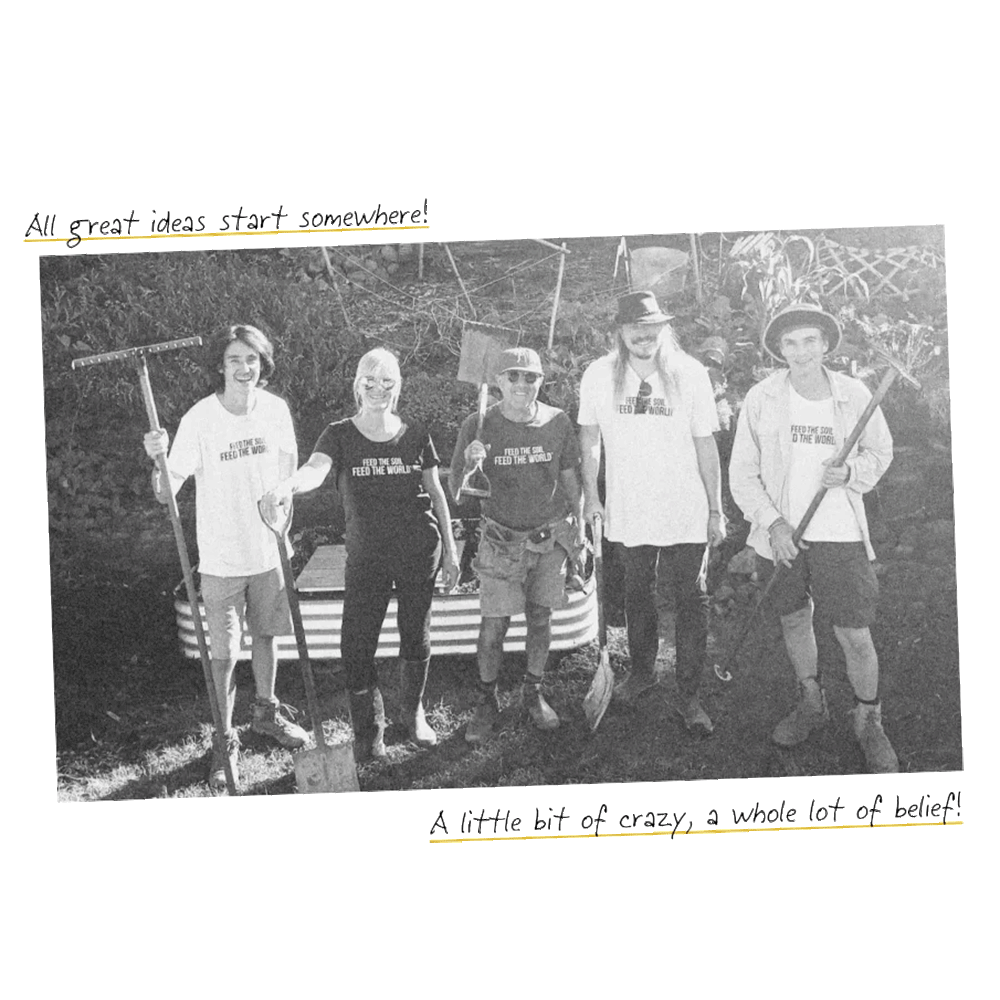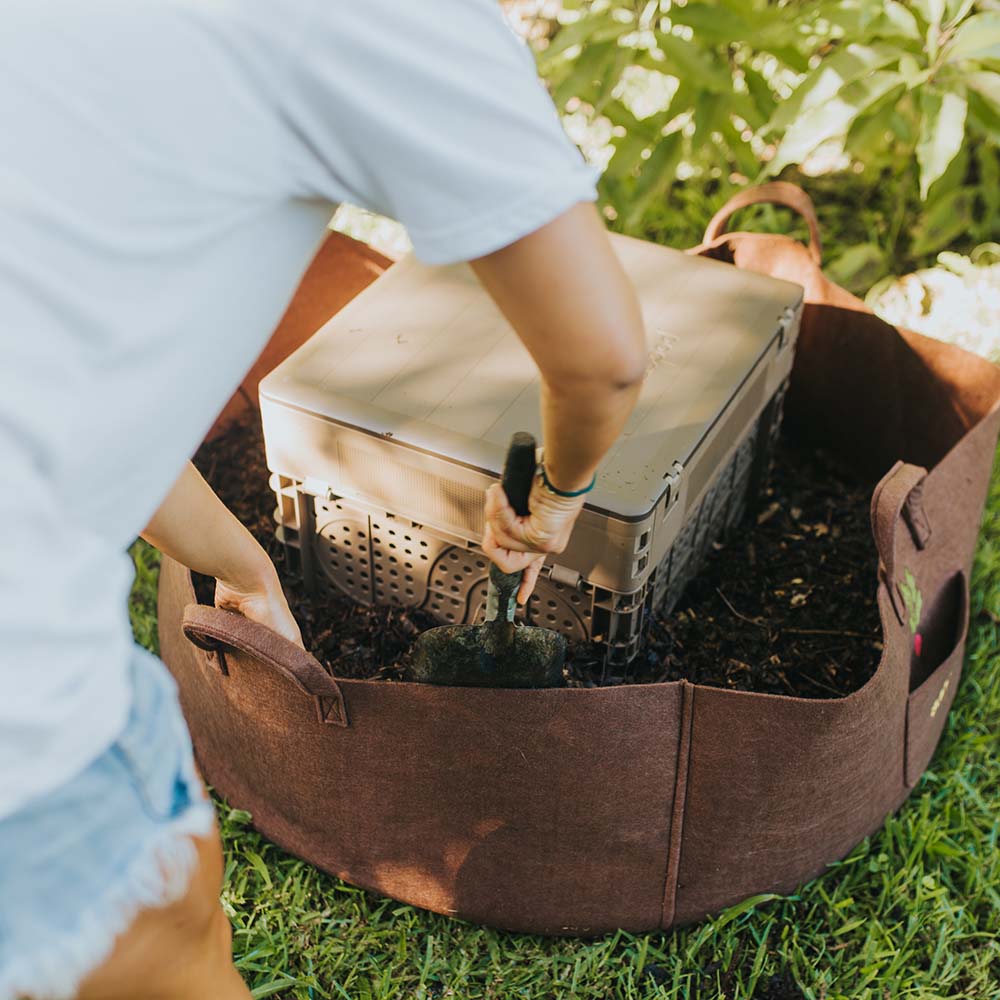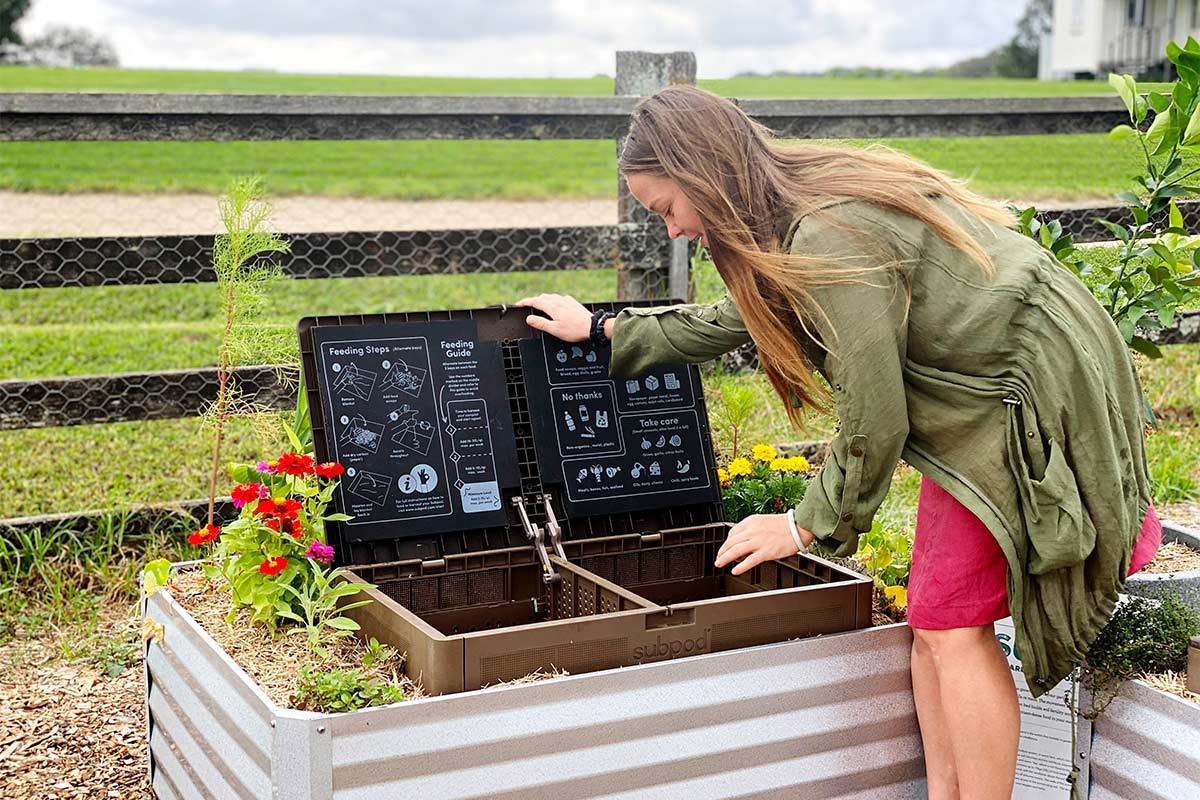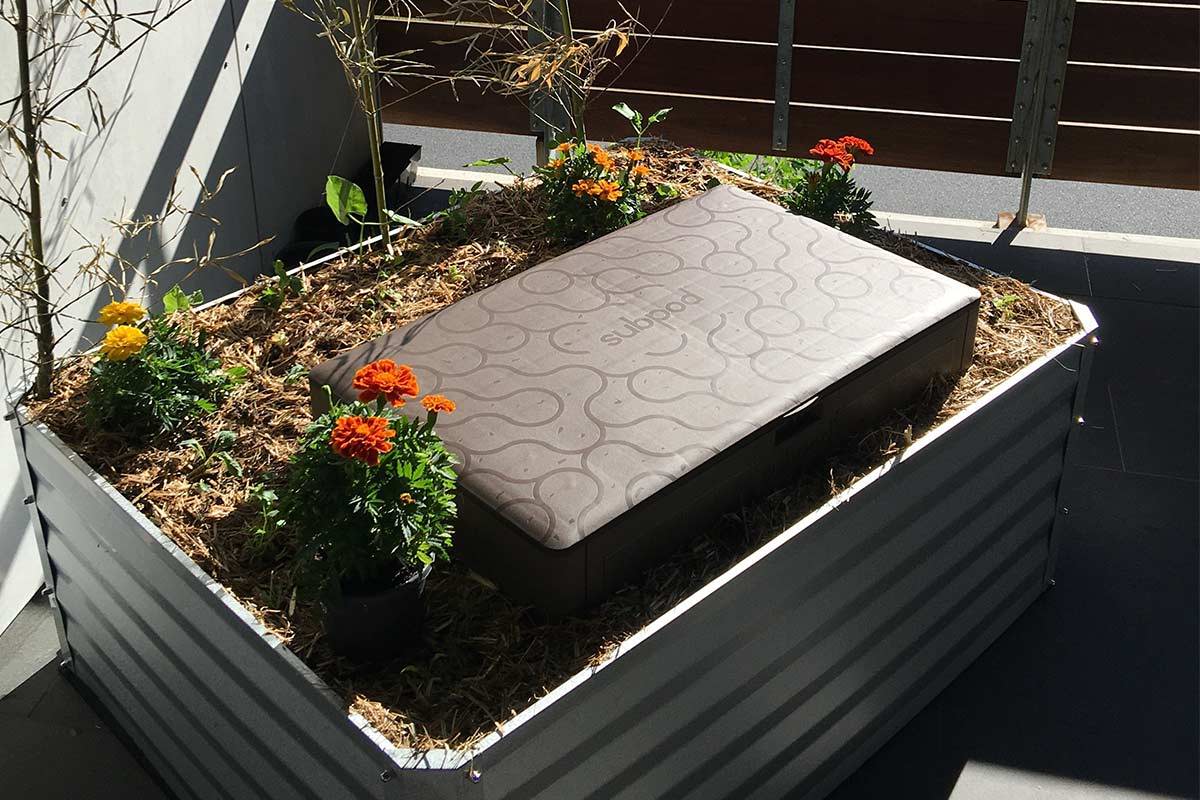There are so many do’s and don'ts out there on the net when it comes to composting. You can surf for hours, go round in circles and still not know where to begin!
Here’s the thing though - composting shouldn’t be hard. It’s a simple process, and it’s easy to fit into your everyday life. Once you begin, you’ll be hooked! Your garden will reap the benefits of the nutrient-rich plant superfood, plus the 150-kilograms of food waste you generate every year will be staying out of landfill.
If you’re starting out on your home composting journey, we get that you will have questions. We want to answer one of the most common ones we run into here at Subpod for you today:
“What's the difference between traditional composting and underground composting?”
Let’s begin by taking a look at the two types of composting and what they entail.
What is Traditional Composting?
Also referred to as classic composting, this means of breaking down organic waste has been around for hundreds of years.
In its most basic form, traditional composting is simply a pile of organic waste in your garden being broken down into compost over time. A tidier method of doing this is to have a compost bin which the waste is put into.
Traditional composting requires a mix of ‘greens’ (anything fresh, such as your food scraps or grass clippings) and ‘browns’ (anything that was once a part of a living thing, like cardboard, dried leaves or paper). The different materials are put into the compost heap or bin in alternate layers, and water is applied.
Bacteria, and fungi go to work, decomposing the waste and breaking it down into compost. During this process the compost pile can become quite hot, which further enhances the breakdown process. It’s necessary to turn the pile regularly too to keep it aerated and prevent it becoming too smelly.
When you compost in this way, you can generally expect the process to take around 6-9 months, although this is dependent on a number of factors.
What is Underground Composting
Underground, or subterranean, composting involves burying your waste materials in the ground where they can go through the decomposition process. It usually involves a compost bin submerged in the soil into which your food waste is placed.
Being underground, worms are used to help break down the waste into compost. This is called vermicomposting, and it produces rich, organic ‘black gold’ compost made out of the worm castings.
Subpod is an underground home composting system, sitting semi-submerged in the soil with its lid above the surface. Compact and contained, it has multiple holes in the sides through which worms can move. This means they spread their nitrogen-rich goodness through the soil surrounding the compost bin too!
What is Better, Underground or Traditional Composting?
We’re going to come out straight up and say it - we’re big fans of underground composting. We feel it has so many benefits over traditional composting that make it easier to incorporate into your everyday life. Let’s take a look at what they are:
Space
A subterranean compost bin like Subpod is compact and streamlined, not requiring large amounts of space to be effective. It can even be used on an apartment balcony, thanks to our Modbed!
When Subpod is buried in your garden, all you see is the stylish lid, which also doubles as a garden seat. Compare this to the unsightly pile of waste needed for a traditional composting heap. With traditional composting, remember you need two separate piles or two separate bins too, one that is sitting forming compost, and one that you’re adding to. Underground composting simply requires less room.
Time
Using worms to break down food waste is a much faster process than traditional composting. Hot compost systems require you to stack your waste (which must include both nitrogen and carbon) and leave it for three to six months. During this time you need to turn it three times, but can’t add any more food waste. You could use a cold compost system, where you can add food waste as you go but they normally take six to nine months to reap results. There are a bunch of risks and problems associated with cold composting though.
Underground systems like Subpod can rapidly compost your waste. They take on 10-15 kilograms of it per week, which is what a six person family would produce. You continually place smaller amounts of waste into your Subpod, which means you can continually reap compost too! It’s much more efficient than waiting for months while your traditional compost pile slowly prepares your compost.
Effort
You have a big unsightly pile of compost in your backyard. Now, you have to turn it. Grab your pitchfork and get turning! You’ll soon realise how backbreaking this job is. You could use one of those compost tumbler bins, but they’re also really difficult to turn when they’re full.
With Subpod, mixing and aerating your compost is simple thanks to our specially designed Subpod Compost Aerator. This ergonomic device makes it so easy, your young kids can turn your compost! Simply open your Subpod lid, spin the aerator down into your compost and use it to mix everything around.
Smells and Pests
A large pile of hot, decomposing food waste in your backyard unfortunately brings smells along with it. And those smells, plus the tasty morsels on offer, means traditional composting attracts hungry critters and pests. This makes for a setup that could get you on the wrong side of your neighbours.
Subpod is an aerobic system, using odourless microbes to boost the composting system instead of smelly anaerobic ones. It’s ventilated too, so fresh air flows through the system, meaning you only need to aerate it occasionally and add dry carbon to keep the smells away.
The lid on a Subpod effectively seals it from vermin too, so you won’t get unwelcome guests taking up residence in your worm farm!
Ready to Start Home Composting?
Subpod’s mission is to make home composting a part of everyday life for people around the world. So if you’re thinking of taking the step to incorporate it into your lifestyle, you’ve just made our day! We think you’ll find vermicomposting or underground composting an easy way to reduce your food waste going into landfill and create highly nutritious organic fertiliser for your garden.
This article is a great starting point to your worm farm composting journey. And why not have a browse of our products below to see which one would suit your garden or balcony best? Our stylish compost bins can cater to households of all sizes!
Want to Start Your Own Worm Farm?
Check out our easy to use home compost systems.







Leave a comment
This site is protected by reCAPTCHA and the Google Privacy Policy and Terms of Service apply.